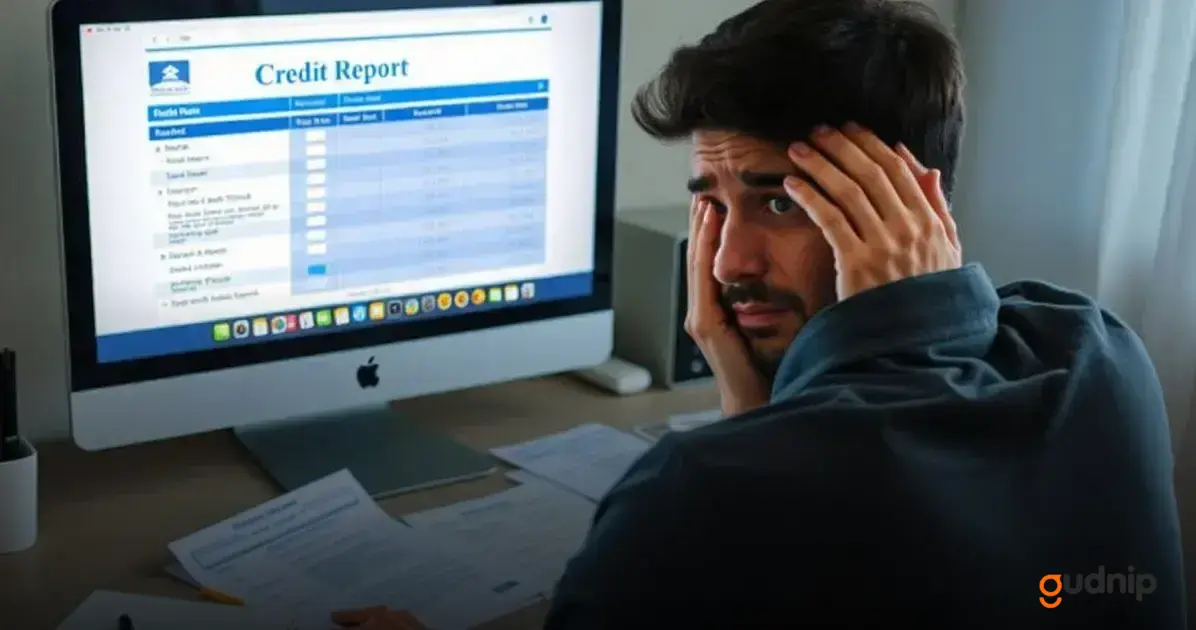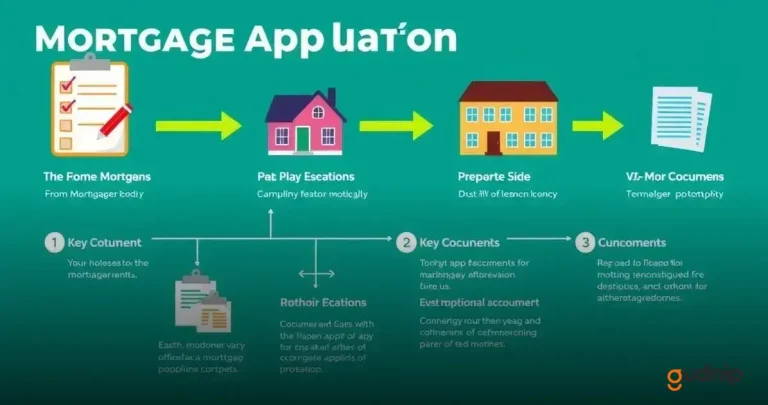When navigating the mortgage application process, one of the most important things to keep in mind is your credit score.
Lenders use this score to determine how risky you are as a borrower. If your score is high, you’ll likely get better interest rates, which saves you money over time.
Think of your credit score like a report card for your financial habits; the better your score, the more opportunities you’ll have.
Besides checking your credit score, it’s equally vital to be honest about your financial situation when filling out your application.
Lenders appreciate transparency and want to know your real income and existing debts.
Being truthful not only builds trust but also helps avoid problems later in the process.
Imagine this as being open with friends; honesty strengthens relationships.
Lastly, be prepared to answer questions and provide additional documentation during the review process.
Lenders may ask for more information to clarify certain aspects of your application.
Responding quickly and thoroughly can help keep your application on track.
It’s like responding in a group project; communication is key to ensuring that everything goes smoothly.
The mortgage application process explained is a crucial step for anyone looking to buy a home.
Navigating this complex procedure can seem daunting, but with the right knowledge, you can make it manageable.
Understanding the Mortgage Application Process
Understanding the mortgage application process is essential for anyone looking to buy a home.
It starts when you decide to take out a mortgage to help pay for the property.
You’ll need to gather important documents, like income statements and credit reports, to provide to your lender.
This process can feel overwhelming, but it’s just like completing a school project – you need to collect all your materials and put them together step by step.
Next, lenders will review your application and assess your financial situation. They check your credit score, debt-to-income ratio, and job history.
This evaluation helps them decide if you can afford to repay the loan. Think of it as a financial check-up for your ability to buy a house.
If everything looks good, you’ll move forward; if not, they may ask for more information or documents.
Once approved, you’ll receive a loan offer. Understanding the terms of this offer is crucial.
You’ll want to know the interest rate, the repayment period, and any fees involved. It’s important to read everything carefully before signing.
Just like reading the rules of a game, knowing what you have agreed to helps prevent surprises later on.
Key Documents Required for Mortgage Applications
When applying for a mortgage, there are key documents you will need to gather. First on the list is proof of income.
This may include your last two pay stubs, W-2 forms from your employer, or even tax returns if you are self-employed.
Lenders want to see that you have a steady income to repay the loan, just like a teacher checking report cards to see how well students are doing.
Another important document is your credit report. This shows how you have managed your debts in the past.
You will want to check your credit score beforehand. If it’s low, it might affect your chances of getting approved.
You can request a free copy of your credit report to check for any mistakes, just like checking your homework before turning it in.
Lastly, be prepared to submit documentation for your assets and debts. This includes bank statements, loan information, and any other financial statements.
Your lender needs to know what you own and how much you owe to understand your financial situation better.
Having these documents ready helps speed up the application process and makes everything smoother.
Tips for Preparing Your Mortgage Application
Preparing your mortgage application well can make a big difference in the process. One of the best tips is to organize all your documents ahead of time.
Gather your proof of income, credit report, and any asset information in one place. Using a folder or a digital file can help keep everything neat.
This way, you won’t waste time looking for papers when it’s time to apply, just like getting your school supplies ready before the first day of classes.
Another helpful tip is to practice good financial habits before applying. Try to pay down existing debts and save a bit more money.
Lenders look for responsible borrowers who manage their finances well.
By being smart with your money in the months leading up to your application, you boost your chances of getting a better loan offer.
It’s similar to studying hard before an important exam.
Finally, don’t hesitate to ask for help. Talk to someone who has gone through the mortgage process or consult with a mortgage advisor.
They can provide valuable insights and tips that can make the application process easier for you.
Having support is like having a study buddy who can offer advice and encouragement along the way, ensuring you feel confident in your decisions.
Common Mistakes to Avoid in the Application Process

One common mistake people make during the mortgage application process is not checking their credit report early enough.
Many don’t realize that errors can exist on their report, which can hurt their chances of approval.
It is important to review your credit report months before applying.
This way, you can fix any mistakes and raise your credit score, just like checking your grades before report cards come out.
Another mistake is forgetting to be honest about your financial situation. Some applicants may try to hide debts or inflate their income.
This can backfire, as lenders have their ways of finding out the truth. Being straightforward increases your credibility and can lead to a smoother process.
Remember, honesty is always the best policy, just like being truthful with friends ensures good relationships.
A third mistake is applying for new credit right before submitting your mortgage application.
When you take out a new loan or use a credit card excessively, it can lower your credit score. This can negatively affect your mortgage approval.
It is best to avoid major financial changes during this time, similar to how you wouldn’t want to start a new sport right before a big game.
What to Expect After Submitting Your Application
After submitting your mortgage application, the waiting game begins. You can expect the lender to review your documents carefully.
This process can take a few days to a few weeks, depending on how busy the lender is. During this time, they may request additional information or clarification.
Think of this phase like waiting for a test score; it’s a good idea to stay calm and be ready to provide anything they need to avoid delays.
Once your application is reviewed, the lender will conduct a thorough check of your finances.
This includes verifying your income, checking your credit history, and even looking at the property you want to buy.
They might send someone to appraise the property to ensure it is worth the amount you plan to borrow.
Understanding this step will help you know that they are making sure everything is in order, much like a teacher checking that all assignments are complete.
Finally, if everything looks good, you will receive a loan approval. This is an exciting moment!
The lender will send you a loan estimate that details your loan amount, interest rate, and terms.
You will have a chance to review this before moving to the closing process.
It’s similar to getting your class schedule for the year; it lays out what’s next and what you can expect.
Understanding Loan Types and Options
Understanding loan types is a key part of the mortgage application process. The most common type is a fixed-rate mortgage.
With this option, your interest rate stays the same for the entire loan term, which is usually 15 to 30 years.
This means your monthly payments won’t change, making it easier to budget.
Think of it like having a steady monthly allowance that you can rely on without surprises.
Another popular option is an adjustable-rate mortgage (ARM).
With an ARM, the interest rate can change after an initial fixed period, usually between 5 to 10 years.
This means your payments could go up or down. While ARMs often start with lower rates, they can be riskier if rates rise in the future.
It’s important to understand how this can affect your budget, much like managing a changing schedule for school activities.
There are also specialized loan options, such as FHA loans, which are designed for first-time buyers or those with lower credit scores.
These loans typically require a smaller down payment and may have more flexible guidelines.
Knowing the different options available helps you choose the one that fits your financial situation best.
It’s similar to picking the right subject to study based on your interests and future goals.
How to Improve Your Chances of Approval
Improving your chances of mortgage approval starts with understanding your credit score.
A higher score can significantly boost your likelihood of getting approved. Before you apply, check your credit report for any mistakes or outdated information.
If you find errors, work to correct them as soon as possible.
Think of this step like polishing your resume; the better it looks, the more chances you’ll have to impress potential lenders.
Another effective way to enhance your approval chances is by reducing your debt.
Lenders often look at your debt-to-income ratio, which measures how much money you spend on debts compared to how much you earn.
You can improve this ratio by paying off existing loans or credit card balances.
Imagine it as making sure your homework is done before a big test; being responsible with your current financial obligations can show lenders you manage your money well.
Lastly, saving for a larger down payment can also increase your chances of approval.
A bigger down payment reduces the lender’s risk, making them more likely to approve your mortgage. Aim to save at least 20% of the home’s price if you can.
This can help you not only get approved but also potentially secure a better interest rate, similar to how studying hard can lead to higher grades.
Frequently Asked Questions about Mortgage Applications

Many people wonder how long the mortgage application process takes. Generally, it can take anywhere from a few days to several weeks.
The time depends on how quickly you provide the required documents and how busy the lender is.
Staying organized and responsive can help speed things up, similar to how being prepared for a school project can lead to a faster completion.
Another common question is whether it’s possible to get a mortgage with bad credit.
While it is more challenging, some lenders offer loans for those with lower scores, such as FHA loans. These programs often have more flexible requirements.
However, it can mean higher interest rates or needing a larger down payment.
It’s important to research all your options, just as you would when picking a topic for an essay.
People also frequently ask if they can change lenders after applying. Yes, you can choose to switch lenders before your loan closes.
However, it’s best to do so early in the process to avoid delays.
If you feel uncomfortable with your current lender or find a better offer, it’s okay to explore other choices.
Just like switching study groups when you don’t feel you’re getting the help you need can lead to better results, changing lenders can help you find a deal that works better for you.
The mortgage application process is an important step for anyone looking to buy a home.
As you prepare your application, make sure you gather all necessary documents, like proof of income and your credit report.
These items help lenders evaluate your financial situation.
Think of it as preparing for a big test; the more you study and organize ahead of time, the better your chances of success.
It’s also crucial to understand the different types of loans available. Some loans have fixed interest rates, while others may adjust over time.
Knowing what each type offers can help you choose the best option for your circumstances.
This is like choosing the right strategy for completing a project; understanding your tools makes all the difference.
Remember, communication with your lender is key throughout the process. If you have any questions or need clarification, don’t hesitate to ask.
They can guide you through each step and help clear up any confusion.
Just like asking your teacher for help when you’re unsure about a lesson, reaching out during your mortgage process can lead to a smoother experience.




